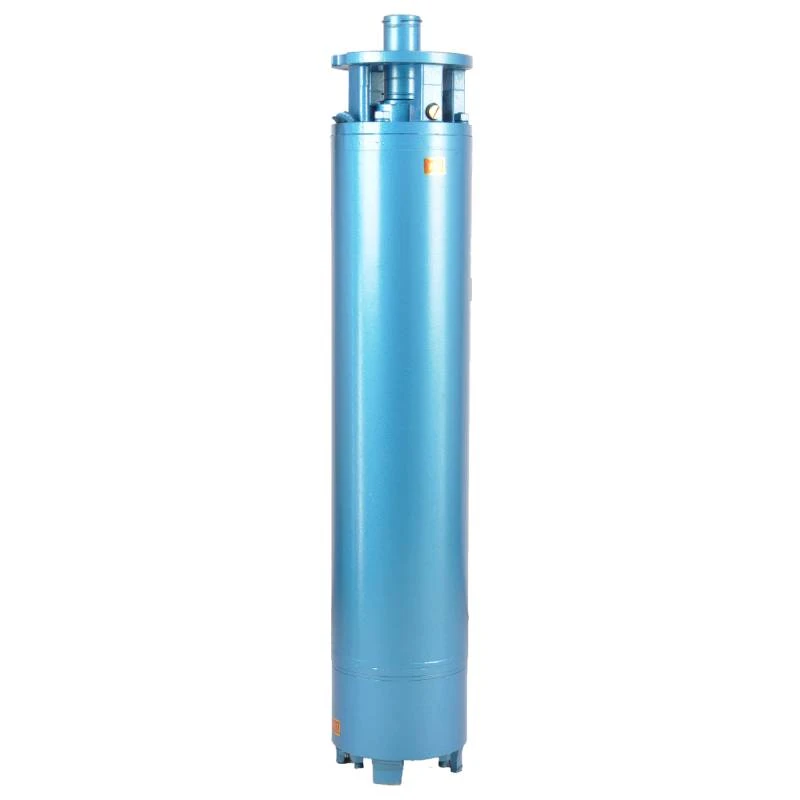Sep . 21, 2024 11:40 Back to list
deep well pump motor
Deep Well Pump Motors An Overview
Deep well pump motors play a crucial role in various industries, particularly in agriculture, municipal water supply, and industrial applications. These motors are specifically designed to drive pumps that extract water from deep underground sources, ensuring an efficient and reliable water supply for a multitude of purposes.
Function and Importance
The primary function of a deep well pump motor is to convert electrical energy into mechanical energy, enabling the pump to lift water from depths that can reach hundreds of feet. This is essential in regions where surface water is scarce or where groundwater serves as the main source of water. The efficiency of the motor directly affects the pump’s performance, influencing both energy consumption and the longevity of the equipment.
Types of Deep Well Pump Motors
Deep well pump motors are typically categorized into two main types submersible and vertical turbine motors. Submersible motors are designed to be submerged underwater within the well, providing a compact and efficient solution for deep well pumping. These motors are hermetically sealed to prevent water ingress, which is critical for their operation and longevity.
On the other hand, vertical turbine motors are installed above the well, with the pump intake submerged. This setup allows for easier maintenance and servicing since the motor is accessible without the need to pull the entire pump system out of the well. Both types offer distinct advantages, and the choice between them usually depends on the specific application and the depth of the well.
deep well pump motor

Efficiency and Performance
When selecting a deep well pump motor, efficiency is a paramount consideration. High-efficiency motors not only reduce operating costs but also minimize environmental impacts, making them a popular choice among conscientious consumers and businesses. Many modern motors incorporate advanced technologies such as variable frequency drives (VFDs), which allow for increased control over the motor speed and performance, adapting to varying water demand.
Moreover, the material and design of the motor play significant roles in its efficiency and durability. Corrosion-resistant materials are often used to withstand harsh environments, ensuring that the motor can perform reliably over long periods. Regular maintenance is also crucial; ensuring that motors are cleaned and serviced can help prevent breakdowns and extend their operational life.
Applications
Deep well pump motors are widely used in agriculture for irrigation purposes, helping to sustain crops in regions with limited rainfall. They are also vital in municipal water supply systems, where they enable reliable access to groundwater resources for communities. Additionally, industrial applications, such as mining and geothermal energy extraction, depend heavily on efficient deep well pumping systems to meet their water needs.
Conclusion
In conclusion, deep well pump motors are essential components in the quest for sustainable and reliable water supply solutions. Their design, efficiency, and application versatility make them indispensable in various fields. As technology continues to advance, we can expect even greater improvements in motor efficiency and performance, further enhancing their role in meeting the global demand for water. The ongoing development in this sector not only supports economic growth but also contributes significantly to environmental sustainability, paving the way for a more water-secure future.
-
Submersible Water Pump: The Efficient 'Power Pioneer' of the Underwater World
NewsJul.01,2025
-
Submersible Pond Pump: The Hidden Guardian of Water Landscape Ecology
NewsJul.01,2025
-
Stainless Well Pump: A Reliable and Durable Pumping Main Force
NewsJul.01,2025
-
Stainless Steel Submersible Pump: An Efficient and Versatile Tool for Underwater Operations
NewsJul.01,2025
-
Deep Well Submersible Pump: An Efficient 'Sucker' of Groundwater Sources
NewsJul.01,2025
-
Deep Water Well Pump: An Efficient 'Sucker' of Groundwater Sources
NewsJul.01,2025
-
 Submersible Water Pump: The Efficient 'Power Pioneer' of the Underwater WorldIn the field of hydraulic equipment, the Submersible Water Pump has become the core equipment for underwater operations and water resource transportation due to its unique design and excellent performance.Detail
Submersible Water Pump: The Efficient 'Power Pioneer' of the Underwater WorldIn the field of hydraulic equipment, the Submersible Water Pump has become the core equipment for underwater operations and water resource transportation due to its unique design and excellent performance.Detail -
 Submersible Pond Pump: The Hidden Guardian of Water Landscape EcologyIn courtyard landscapes, ecological ponds, and even small-scale water conservancy projects, there is a silent yet indispensable equipment - the Submersible Pond Pump.Detail
Submersible Pond Pump: The Hidden Guardian of Water Landscape EcologyIn courtyard landscapes, ecological ponds, and even small-scale water conservancy projects, there is a silent yet indispensable equipment - the Submersible Pond Pump.Detail -
 Stainless Well Pump: A Reliable and Durable Pumping Main ForceIn the field of water resource transportation, Stainless Well Pump has become the core equipment for various pumping scenarios with its excellent performance and reliable quality.Detail
Stainless Well Pump: A Reliable and Durable Pumping Main ForceIn the field of water resource transportation, Stainless Well Pump has become the core equipment for various pumping scenarios with its excellent performance and reliable quality.Detail
